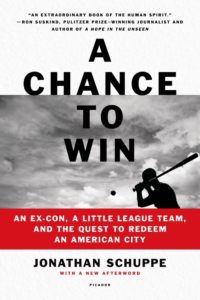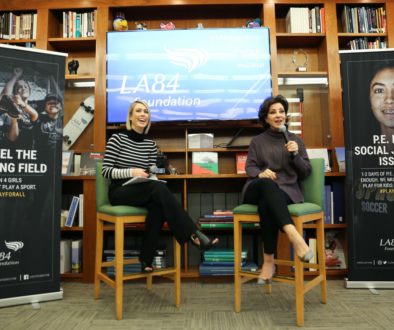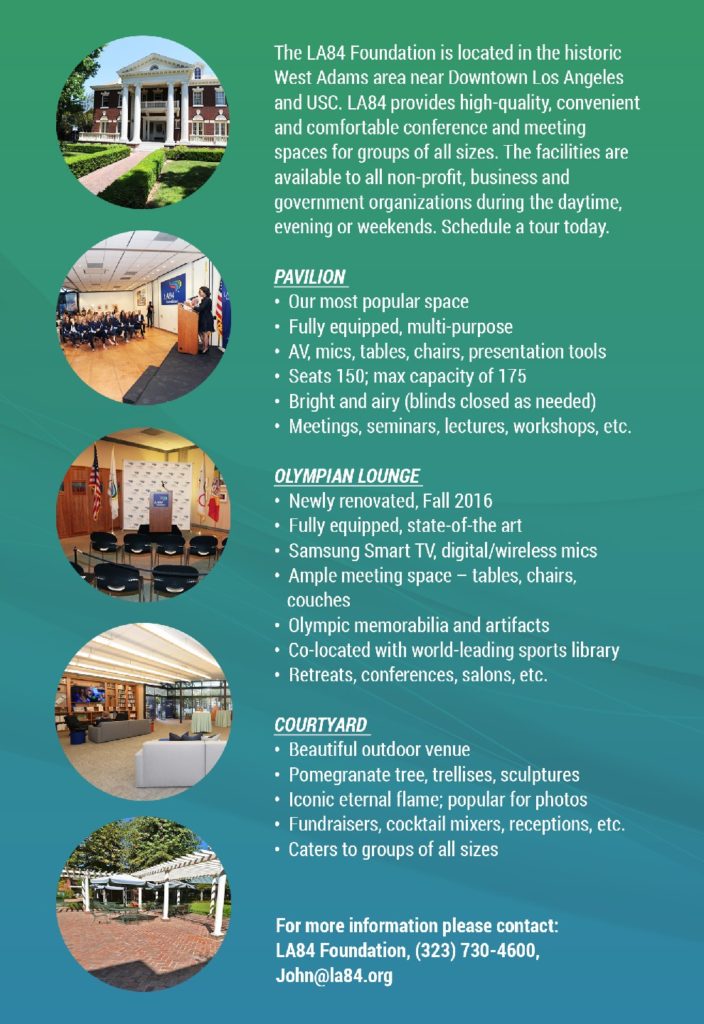SL Interview: Jonathan Schuppe and Youth Baseball in a Troubled City
 The statistics were grim. In the early 2000s, at a time when crime rates were falling across the country, the city of Newark, NJ, was experiencing an upturn not only in homicides and gun-related homicides, but also non-fatal shootings. These crime categories were spiking almost to the level of the early 1990s, when the crack epidemic wreaked havoc throughout America.
The statistics were grim. In the early 2000s, at a time when crime rates were falling across the country, the city of Newark, NJ, was experiencing an upturn not only in homicides and gun-related homicides, but also non-fatal shootings. These crime categories were spiking almost to the level of the early 1990s, when the crack epidemic wreaked havoc throughout America.
Newark Star-Ledger crime reporter Jonathan Schuppe began to investigate this anomaly. His beat was Newark, New Jersey’s largest city, with a population of about 270,000, the majority of whom are African-American. Schuppe wanted to go beyond the usual “run-and-gun” reportage and, instead, write about the impact of violent crime on individual lives and the community at large.
One of his earliest feature stories focused on the life experiences of Rodney Mason. A former pitching ace for Malcolm X. Shabazz High School, Mason turned to dealing drugs and spent time in prison. His life was altered permanently in 1995, when he was paralyzed in a drive-by shooting in the South Ward, one of Newark’s toughest neighborhoods.
Mason and Schuppe stayed in touch after the story was published. In the spring of 2008, after the city of Newark announced plans to rehabilitate an abandoned park across the street from where Mason lived, he informed Schuppe that he was going to coach a Little League baseball team. His players were kids he corralled from the neighborhood, many of whom were growing up without father figures in their lives.
Schuppe followed Mason and the Elizabeth Avenue Eagles during the first season and wrote about this for the newspaper. He was hooked by their gritty resiliency and decided to follow them over the course of several years, as Mason strove to stop dealing drugs and the kids on the team attempted to avoid the chaotic strife of inner-city life.
The book, titled “A Chance to Win: Boyhood, Baseball, and the Struggle for Redemption in the Inner City” (Henry Holt and Company), was published in 2013. A paperback edition with a revised subtitle and lengthy afterword came out last year, and the book was tabbed as a finalist for the 2015 PEN/John Kenneth Galbraith Award for Nonfiction. Schuppe earned a grant from the J. Anthony Lukas Work-in-Progress Award from Columbia University to help him with the endeavor.
The power of “A Chance to Win” comes from Schuppe’s dogged reporting and his refusal to gloss over the challenges that Rodney Mason and his youth baseball players faced daily. According to Kirkus Reviews, “The author’s experience as a journalist on the streets of Newark helps the city itself become the most powerful character in the drama, as Mason and the Eagles try to escape the cycle of poverty and violence that surrounds them. In the absence of a consistent group of players, the team didn’t ever coalesce, and what appears at first to be a story about the redemptive power of sports becomes, instead, a tale of a city and its residents fighting for survival.”
Schuppe also examines the myriad reasons why African-American athletes have abandoned baseball for other sports, most prominently football and basketball. Despite such outreach efforts as Reviving Baseball in Inner Cities (RBI) and the Urban Youth Academy, the number of African-Americans playing Major League Baseball has decreased precipitously over the past 30 years. According to figures published recently in USA Today, only 7.8 percent of ballplayers on the opening-day rosters in 2015 were African-American, down from 19 percent in 1986.
Schuppe lives in Maplewood, a suburb of Newark. He currently works at NBC News, writing for the network’s online bureau. SportsLetter recently spoke with him by phone from his office in New York City.
–David Davis
SportsLetter: You were a reporter for the Star-Ledger newspaper when you first met Rodney Mason. How did that come about?
Jonathan Schuppe: I was for a long time a reporter at the Ledger focusing on politics and the machinations of government. I was in the statehood bureau when we won a Pulitzer Prize for stories that led to the resignation of Gov. Jim McGreevey. But I realized that I was not happy covering the policy-makers and that I wanted to cover what I would call “real life people” on the street level. So I asked for a transfer out of the statehouse bureau and became a crime reporter covering Newark in 2004.
What I did, just like any beat reporter worth his salt, I started going out and covering all the mayhem of Newark – and there was a lot of mayhem. There was no shortage. Pretty quickly I started to feel overwhelmed by the churn of these events in which so many people’s lives were either directly affected or indirectly affected. I felt I was not doing it justice in the journalistic sense because I was not explaining what was going on in a larger contextual basis. As a reporter, I wanted to explain the social dynamics – the causes and effects of the increase in gun-related homicides and non-fatal shootings – and so I began to do stories, what we call enterprise stories, that tried to answer some of these questions.
One of the first stories I did with that in mind was a story about what happens to the people who get shot and survive, or the people who witness gun violence and have to go on with their lives, and how does that ripple effect impact a community. I was looking for gun-violence survivors, and that is how I met Rodney Mason in late 2004, early 2005. He was a one-time pitching star who was shot and paralyzed in a drive-by shooting. That was the beginning of our relationship, which was fairly superficial in a newspaper reporter-subject kind of way. I interviewed him, we took a picture of him, the story ran in the paper. But we kept in touch and, ultimately, that’s how I knew about him forming the Little League baseball team.
SL: Mason was dealing drugs when he got interested in coaching a Little league team in the park across from where he hung out. Do you think that he was a positive role model for the kids he was coaching?
JS: I would say yes. Newark is a small town. Everyone knows each other. Rodney’s past was no secret. Everyone knew the type of person he was, if not the kids, then the kids’ parents. But he was going through a transformation which many men who have done the type of things that he had done – dealt drugs, gone to prison – often do when they get older and have more perspective: trying to redeem themselves and trying to find a way back to society as a productive member. I think people saw what was happening with Rodney and rooted him on – the kids and their parents – because of what he was trying to do.
At the same time, he gathered together kids in the neighborhood that really had no baseball tradition. A lot of these kids were not kids who would be playing other sports. Football is big in Newark, but his team drew a bunch of ragtag kids who didn’t even know what arm they threw with, who didn’t even have a baseball glove. He brought these kids together and, while learning himself, taught them how to be a team. One of the more compelling aspects of team sports, especially in a case like this with disadvantaged children, is that he was able to teach them how to lose and lose well. To keep their heads up and continue to try to improve.
That is the process that I saw that first season hanging out with them. Although he didn’t necessarily give these rousing, Vince Lombardi-type speeches, he led by example in the sense that he was teaching them how to not only play the game but to have dignity for themselves and to maintain their respect. It wasn’t easy. This wasn’t something where suddenly this light bulb went off. It was a very gradual process, with a lot of disciplinary problems: kids talking back and threatening to beat up the coaches and getting family members to beat up the coaches. It was a very difficult, often painful, learning experience for everyone involved. Ultimately, they started to coalesce into a team.
SL: You became part of the story and you admitted to feeling frustrated when you discovered that Rodney had lied to you about his drug dealing. What was it like to continue the relationship with this well-meaning, but flawed, coach?
JS: Journalistically I worried that I had screwed up. I worried that, in wanting so much to see Rodney turn things around. I let myself root a little bit too much for him. I wondered whether that rooting made me blind to what someone else might have seen as a pretty obvious situation. That was a shock to me when he admitted that, and I was very disappointed.
In retrospect, I think the story is better for that because it’s more reflective of real life. This is how redemption in general is achieved. It’s through small victories. People don’t change overnight. People don’t decide that all of a sudden they’re going to stop being bad and automatically become good. It’s a process. It’s a road that you’re on. When you start to make the right, little everyday decisions, you start to regain your sense of respect and hopefully get on that road toward redemption.
SL: You didn’t just follow Rodney’s story, of course, but also three others: two youth baseball players on the team (DeWan and Derek) and one father of a player (Thaiquan). Why did you choose to follow those particular individuals?
JS: The first thing I wanted to do was choose people who, number one, were open to my spending a lot of time with them so that I would be able to accurately portray their lives and, number two, they would be open with me in interviews and self-aware enough to talk about what they were going through in life. Those two criteria led me to DeWan and Derek. There were a couple of other kids who I wanted to focus on as well, but for various reasons they fell off the radar screen.
What I also wanted to do was follow children who seemed not to be part of the typical broken-family cliché. I wanted to find kids who did seem like they came from solid households, with involved parents, so that I could portray what I believe would be a more real side of life in the inner city. Now, my presumptions about the solid households didn’t necessarily end up being true, but the kids ended up being very compelling. They were open, respectful, and generous subjects.
With Thaiquan, the father, I didn’t realize what I had with him until much later on in the reporting. I ended up scrambling to piece together his story because I realized that an underlying theme that emerged with this book was the role of fatherhood, including the lack of a father’s presence in young children’s lives. Everyone who I talked with, to a person, had a father issue. What I saw in Thaiquan was someone who had been one of those fathers who wasn’t around. Now he was struggling to remake himself to be more of an ideal kind of father. So, I decided that was an important aspect of the story to include.
SL: How would you describe the toll on Derek and DeWan – on youth in general — who grow up in inner-city neighborhoods plagued by violence?
JS: I could see the pain that they were going through. Not all of them survive with their emotional wellbeing intact. With Derek and DeWan, they were going through similar yet different aspects of trauma. DeWan was searching for a father he could depend on, and Derek was looking for a home that was stable enough for him to remain in while he was losing his mother at the same time. I could see the pain that these kids were internalizing, but it was incredible how self-aware they were in expressing their feelings.
Derek and DeWan clung to optimism. In DeWan’s case, he kept giving his stepdad another chance because he felt like that would give his family another chance. He wanted his mom to have a husband and wanted them to be a normal family. With Derek, he was more of a brooding type. But in the end, he realizes the limits of what his father can give him. He accepted it and decided to enjoy what he was going to get out of that and go on with his life.
One thing that I found uplifting about this experience – and what I hope readers will take away from the book – is how resilient these kids are and how they still have hope in their families and have something to look forward to as they grow up and finish school and go about their lives.
SL: What was it like for you to spend so much time with the kids in their neighborhood and then return to your own life and family in the suburbs?

JS: There’s no question that I came home to comfort every day. It was, on a very fundamental level, a huge reminder to me about how lucky I am. I was hoping that readers from similar situations would take that from the book. But I also felt compelled to share what I could from my life with the kids and with Rodney. I brought my then-baby daughter and my wife to meet everybody. I brought them to the games. We got invited to parties. I felt like this gap that gets talked about a lot these days – the income gap and the class gap, the inequality and social justice gap – compelled me as a person to do what I could to bridge that and to shine a light on the experiences of people in cities who don’t live too far from those of us who live in relative comfort.
SL: What do people not get about life in a place like Newark?
JS: The pull of Newark – and how difficult it is to get out. When I’ve done readings and talked about the book in the suburbs, people always ask me, “Well, why don’t they just move?” They don’t understand. It’s just not that easy.
My number one goal was to write a story that felt genuine and real, that people who live in Newark but also in places like Newark would relate to it. I feel like not enough is written about places like Newark.
SL: This book does not have a Disney-esque ending, where the band of misfits rallies to win the championship and save the town from ruin. With the amount of time that you spent on the book and with all the people that you got to know so intimately, were you hoping for a different result?
JS: I remember having a conversation early on with the man who would ultimately become my agent. He said something to the effect that, “Well, this would be a great story if they win the Little League World Series.” That’s true, but my argument was that, this is not a Hollywood story. The ending is the ending. It is what it is. It’s real life. Ultimately that became the strength of the book.
SL: How is Rodney doing now and are you still in touch with him?
JS: I talk to him on at least a weekly basis. Rodney is still coaching youth baseball and is doing well. He’s run into some physical issues related indirectly to his spinal injury that has kept him from being as involved as he had hoped to. But he continues to draw a lot of attention and support from the city of Newark and the county. He ran a baseball clinic this year with the county’s help. So, he continues to progress in his own way, and he feels very good about himself and the path that he’s on.
SL: What does it take for youth baseball – or any sport involving youth – to be part of the solution when it comes to the myriad social challenges of the inner city?
JS: I look at Little League Baseball as a piece of the solution, just like a non-profit group trying to help ex-cons reintegrate into a neighborhood or a church group that tries to help the jobless or feed the hungry. A Little League team, in addition to helping kids learn a sport and be competitive, brings together a community. It gives children a place to congregate in a safe way to learn how to be part of something larger than themselves and to represent their neighborhoods with pride.
That was the real benefit I saw through Rodney’s effort. Even by the end of the season, they were still a pretty lousy baseball team. But people came out in crowds to watch them play, to root them on, because they became a source of pride for the neighborhood. I saw everyone rallying behind them because they were such underdogs. That’s when it hit me about the underappreciated power of youth sports that Rodney’s team symbolized.
SL: There have been many reports about the declining numbers of African-American ballplayers in Major League Baseball. Can baseball make a comeback among kids who live in the inner city?
JS: There are a lot of Pop Warner football teams in Newark, like there are in communities across the country. Basketball is very popular because it’s so easy just to pick up a ball and play. But I think there’s also a cyclical process at work: baseball became a sport that was not played much in the inner city, and so there were less people from the inner city, especially African-Americans, who made it to the Major Leagues. Therefore, young children didn’t see people who they related to playing the game on television, whereas, they did see more of that with basketball and football. Those are the people they sought to emulate, and therefore they played those sports.
More often than not, the kids who ended up playing on Rodney’s team did so not because they emulated Derek Jeter or somebody, but because this guy on their block said, “Come play on my team.” There were no popular culture points of reference in these children’s lives concerning baseball.
But in the process of reporting this book, I also saw hopeful signs. There’s an effort to re-engage inner-city communities with baseball that reflects a broader effort by Major League Baseball and Little League International across the country. The root reason for Rodney creating this team in the first place was the refurbishing of a Little League field across the street from his apartment building, and that wouldn’t have happened without this broader movement to reclaim baseball fields and re-invest in Little League teams and other youth baseball organizations on the local level. I’m confident that those numbers are going to start to shift. It’s going to take a few years, but I think you’ll start to see an uptick.
SL: Last year, the Little League team from Chicago made headlines with their victories, but then they were stripped of their title for rules violations. Did you feel that they were treated fairly?
JS: It was just really sad because it was one of those examples of the adults ruining it for the kids. It wasn’t the kids’ fault that this happened. On a symbolic level, what was so great about that team from the South Side of Chicago was that they were the first all-African-American team to win the U.S. title. That was hugely symbolic in the movement we just discussed [concerning the decline of baseball in the inner city], and so it was all the more tragic when the title got yanked from them. Beyond the symbolism and the tragedy of that situation, I don’t think it portends anything bad for the larger effort to re-invigorate baseball in the inner cities. I think the momentum is already going pretty strongly.
SL: What most surprised you in your reporting and writing this book?
JS: A couple of things. One was, I was shaken by the spurts of brutal violence that happened during the reporting of the book. There were drive-by shootings and the murder of a young mother in the immediate neighborhood. That shook people. There was a shooting that interrupted a practice, where everyone on the team had to scatter and go home. Even though I was aware of these things as a former crime reporter, when I saw it impact young people directly it shook me up a little bit.
My surprises came on a more personal level. I’m surprised at how close I came, and the strength of the relationships I developed, to a lot of the people I wrote about, including Thaiquan, the father. At the time I was becoming a father myself. My daughter was born in January of 2009, just as I was getting going on the reporting of the book in earnest. I feel like I’m a better man and a better father for knowing Rodney, the boys and their families, especially Thaiquan. I saw that you don’t make promises that you can’t follow up on when you’re raising a child. I learned that from watching kids who experienced that first-hand.
I was also very surprised and chastened for not seeing that Rodney was continuing to deal drugs. That was probably the biggest surprise reporting-wise for me.
SL: Do you have plans for another book?
JS: I don’t have specific plans to write another book. A lot of people, when I talk about the book at public events, want to see a sequel. I don’t have plans for anything like that.
What I do now is continue to talk about the book and talk about how to bridge the gap to connect the inner cities and the communities around them, to try to encourage more understanding and more dialogue on the issues that the book raises.




